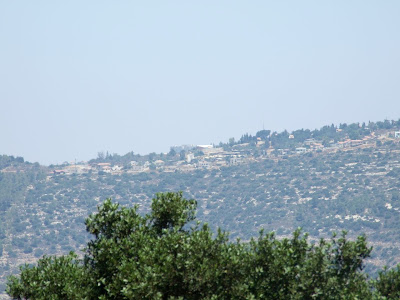1. Stanley Fish has finally written a column in the New York Times that I agree with, about how the accomplishments of both Professor Gates and President Obama are being doubted because of their blackness. At Duke, where Fish hired Gates as a professor in the English department, his accomplishments were doubted because of his blackness - "Doubts were expressed in letters written by senior professors about his scholarly credentials, which were vastly superior to those of his detractors. (He was already a recipient of a MacArthur fellowship, the so called 'genius award.')" In a similar way, the "Birthers" - those people who do not believe that Obama was born in the United States - cast doubt on his right to the Presidency.
Gates is once again regarded with suspicion because, as the cultural critic Michael Eric Dyson put it in an interview, he has committed the crime of being H.W.B., Housed While Black....Both Professor Gates and President Obama challenge a powerful white racist stereotype about blacks - the belief that they are inherently less intelligent, and therefore inferior to whites. And if blacks are inferior to whites, anything they accomplish in life is a sham and a trick, especially if they do better than a white person. It's embarassing to my profession that senior members of the Duke faculty thought that Gates was inferior to them despite having won an award that they doubtless would have liked to receive themselves.
Gates and Obama are not only friends; they are in the same position, suspected of occupying a majestic residence under false pretenses. And Obama is a double offender. Not only is he guilty of being Housed While Black; he is the first in American history guilty of being P.W.B., President While Black.
2. Charles Blow, NYTimes op-ed columnist, writes about his first experience with a white policeman in Louisiana who threatened to shoot him and his friends at a traffic stop: Welcome to the Club. He also brings some useful statistics into the debate:
3. The President has also issued a new statement about the arrest and subsequent controversy arising from his words:A New York Times/CBS News poll conducted last July asked: “Have you ever felt you were stopped by the police just because of your race or ethnic background?” Sixty-six percent of black men said yes. Only 9 percent of white men said the same.
These views are not without merit. A series of racial-profiling studies across the country have found that blacks and Hispanics are more likely to be stopped and searched than whites.
In fact, last year the Center for Constitutional Rights, a New York law firm specializing in human rights, released a damning study of the racial-profiling practices of the New York Police Department. It found that more than 80 percent of those stopped and frisked were black or Hispanic. The report also said that when stopped, 45 percent of blacks and Hispanics were frisked, compared with 29 percent of whites, even though white suspects were 70 percent more likely than black suspects to have a weapon.
He did not apologize but softened his language. “I continue to believe, based on what I have heard, that there was an overreaction in pulling Professor Gates out of his home to the station,” he said. “I also continue to believe, based on what I heard, that Professor Gates probably overreacted as well.”Original Post
Mr. Obama described Sergeant Crowley as an “outstanding police officer and a good man” who has “a fine track record on racial sensitivity.” But he said the incident showed that “because of the difficulties of the past, you know, African-Americans are sensitive to these issues.”
The officer who arrested Henry Louis Gates, Jr. last week has said that he won't apologize since he didn't do anything wrong (Officer Defends Arrest of Harvard Professor).
Sergeant Crowley said that he arrested Professor Gates because the professor got angry after being asked for identification and proof of his address, and continued his “tirade after being warned multiple times.” The sergeant was adamant that he was following police procedures in making the arrest.....I don't understand why getting angry and yelling inside one's own home or on the front porch is grounds for an arrest. What did Professor Gates do wrong? Why would the police consider yelling to be something wrong? Aggravating, yes. Who likes to be yelled at? I'm starting to wonder if this isn't just a case of racial profiling, but of a cop reveling in the power of being a cop - of having that power to stop someone else's yelling by arresting them. I still strongly doubt that a white professor in the same situation would have been arrested.
Next, the sergeant said, he warned Professor Gates to calm down and lower his voice, and to step outside to his front porch. Sergeant Crowley said he gave the professor two warnings, the second while holding a set of handcuffs, but that the professor continued berating him. “The professor at any point in time could have resolved the issue by quieting down and/or by going back in the house,” he said in the radio interview.



